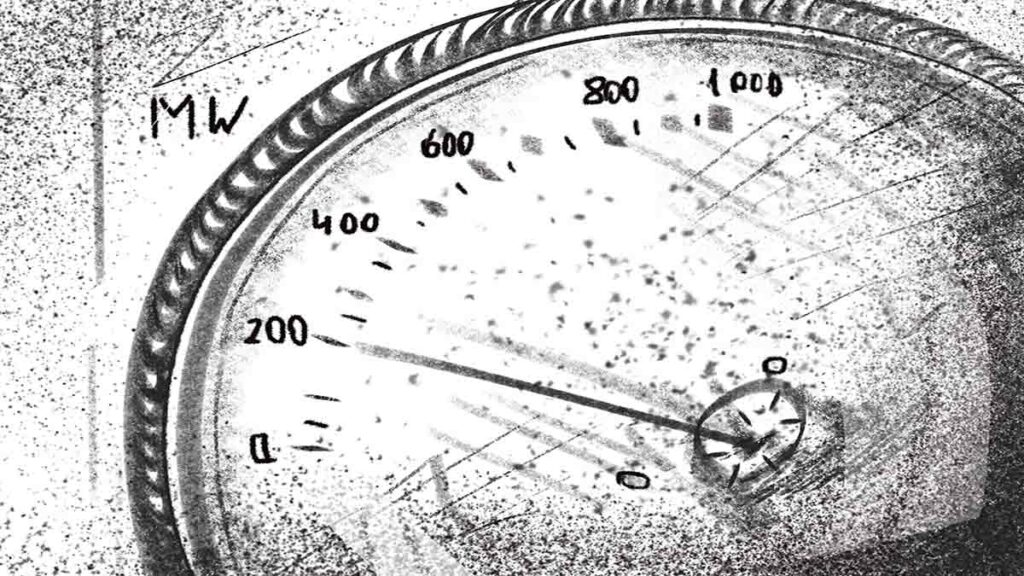
00:30 a.m. During the transition to an automatic control regulator, the operator was unable to hold the reactive power, and it failed, falling to the maximum critical level, the reactor practically entered the stopper. Dyatlov makes a catastrophic mistake in a panic anger. He orders the senior engineer to withdraw the control rods, thereby pursuing the goal of normalizing the power of the reactor. The trigger is pulled.
The control rods determine the acceleration and deceleration of the nuclear reactor. Under its 15 meter roof are uranium elements that emit a huge amount of thermal energy. During the decay reaction of uranium atoms, they transform water into steam, generating a huge amount of heat.
Steam is sent to giant turbines that reproduce electricity. Harvest control rods control this powerful force. When they rise, the power will certainly be pumped up, especially if you take them out completely, but then there is a risk that the engineers will lose the ability to control the reactor. By coincidence, this is exactly what Dyatlov requires in an ultimate form from his subordinates.
The conflict between him and L.Toptunov escalates again and the latter refuses to comply with the order of the chief. For some time, Yuri Tregub, shift supervisor of the 4th unit of the station, becomes the control panel, and together with Akimov they begin to disperse the reactor. Five minutes later, the power begins to gradually increase. Dyatlov got what he wanted, and ordered Toptunov to take the control place at the console again. The station management personnel did not have the opportunity to resist the experienced senior manager.
The work of the CNS engineer is well paid. Everyone has an apartment, their families are provided with everything necessary. They live in neighboring Pripyat, where the supply passes according to the highest food standards. Everything is in the shops, schools and kindergartens are built, there is a park for children’s entertainment.
None of those who was on duty that night wanted to stay out of work, this fear – to lose everything – did not allow them to defend their point of view, even when it became clear that their actions could provoke catastrophic consequences. In parallel with the growth of reactor power, the catastrophe is approaching. Dyatlov, deliberately ignoring the protocol with technical requirements, according to which the experiment should be carried out with a minimum of 700-800 MW, gives the go ahead for testing the reactor at a power of 200 MW, considering that the risk is not great and it’s worth it. No one can stand up against serious arguments and professionally convince Dyatlov, not conduct the test, focusing on the fallacy of his decision.
Replaced by employees whose qualifications did not inspire Dyatlov a sufficient degree of respect, he simply did not listen to them, considering them insufficiently experienced. He himself is the product of a socialist regime that grown up and educated him. He was born in a family with a small income, his father was a simple fisherman, the boy often ran away from home.
Despite the difficult childhood, he broke out in people, became an engineer, joined the party. A dark spot in his biography is his work in Siberia when he took part in the installation of a nuclear reactor in a submarine. During unprofessional actions, the situation got out of control and a nuclear explosion occurred, the consequences of which many have suffered, including the son of Dyatlov.
The commission of inquiry tried to establish the involvement of Dyatlov himself in this tragedy. Direct evidence has never been found then. He remained to work in the profession, but became more categorical, and not always disciplined, convinced that in the nuclear industry the code of rules and practical reality sometimes do not correspond to each other. Sometimes, in order to achieve a result, one has to cunning, cutting off sharp corners.